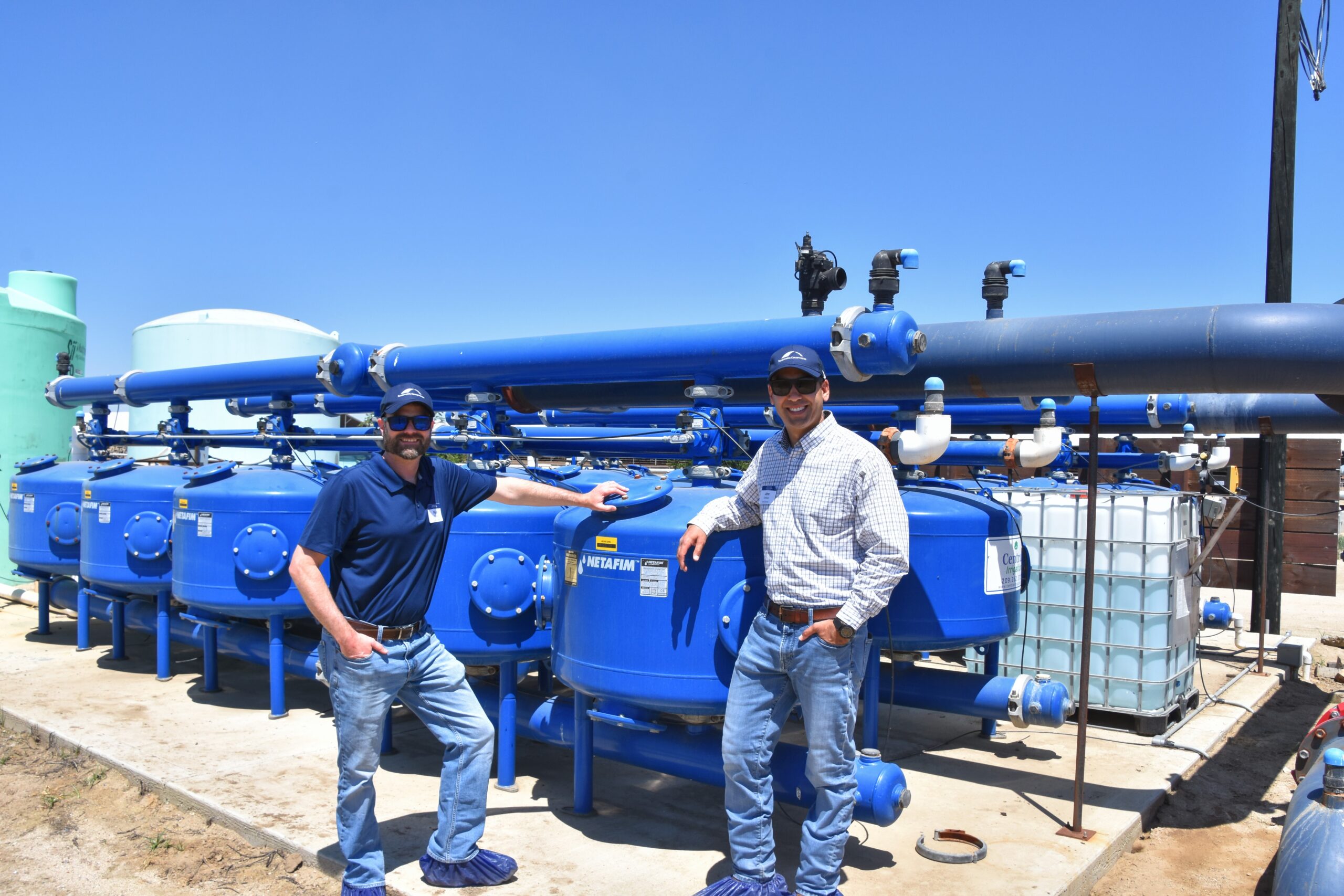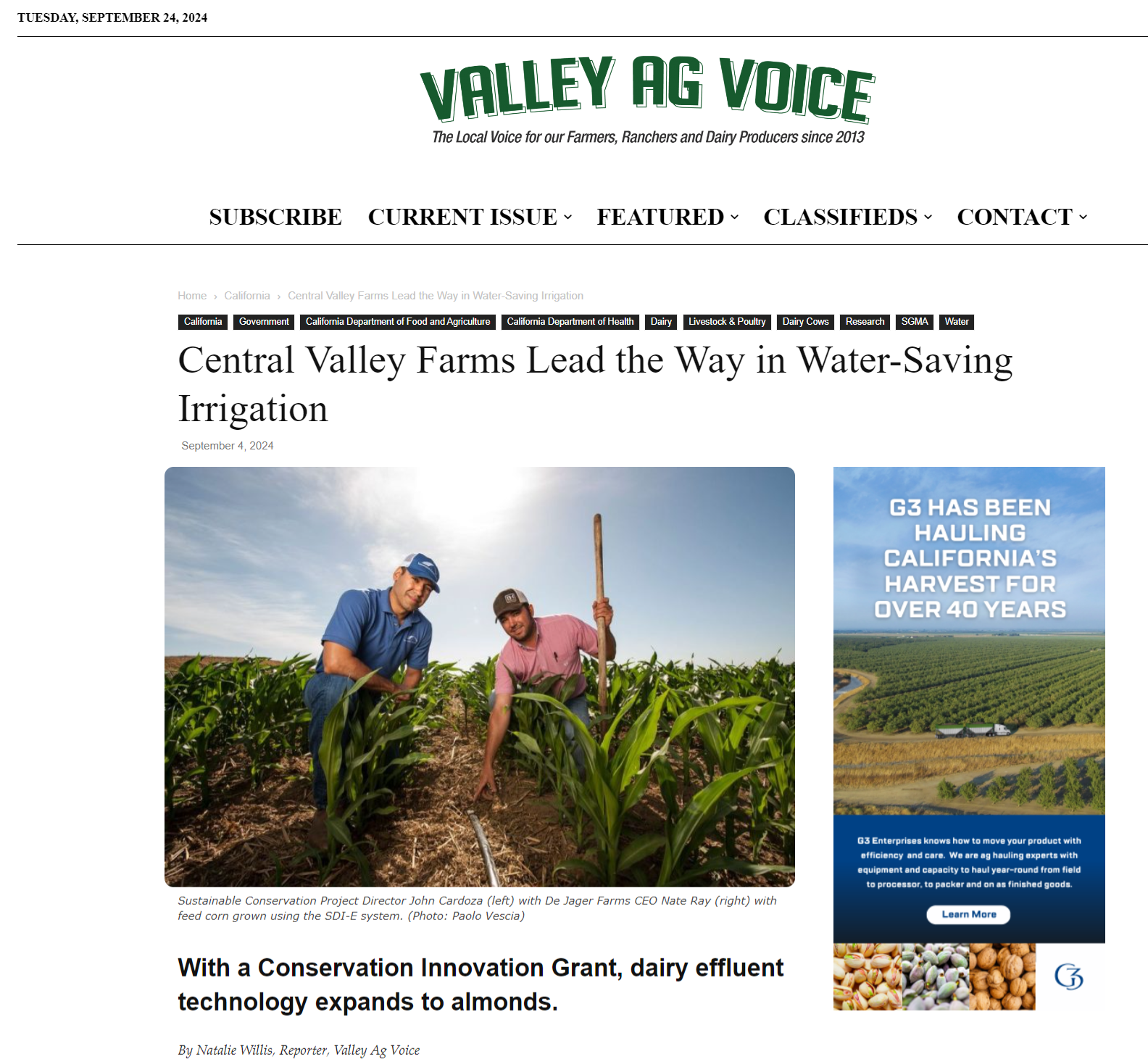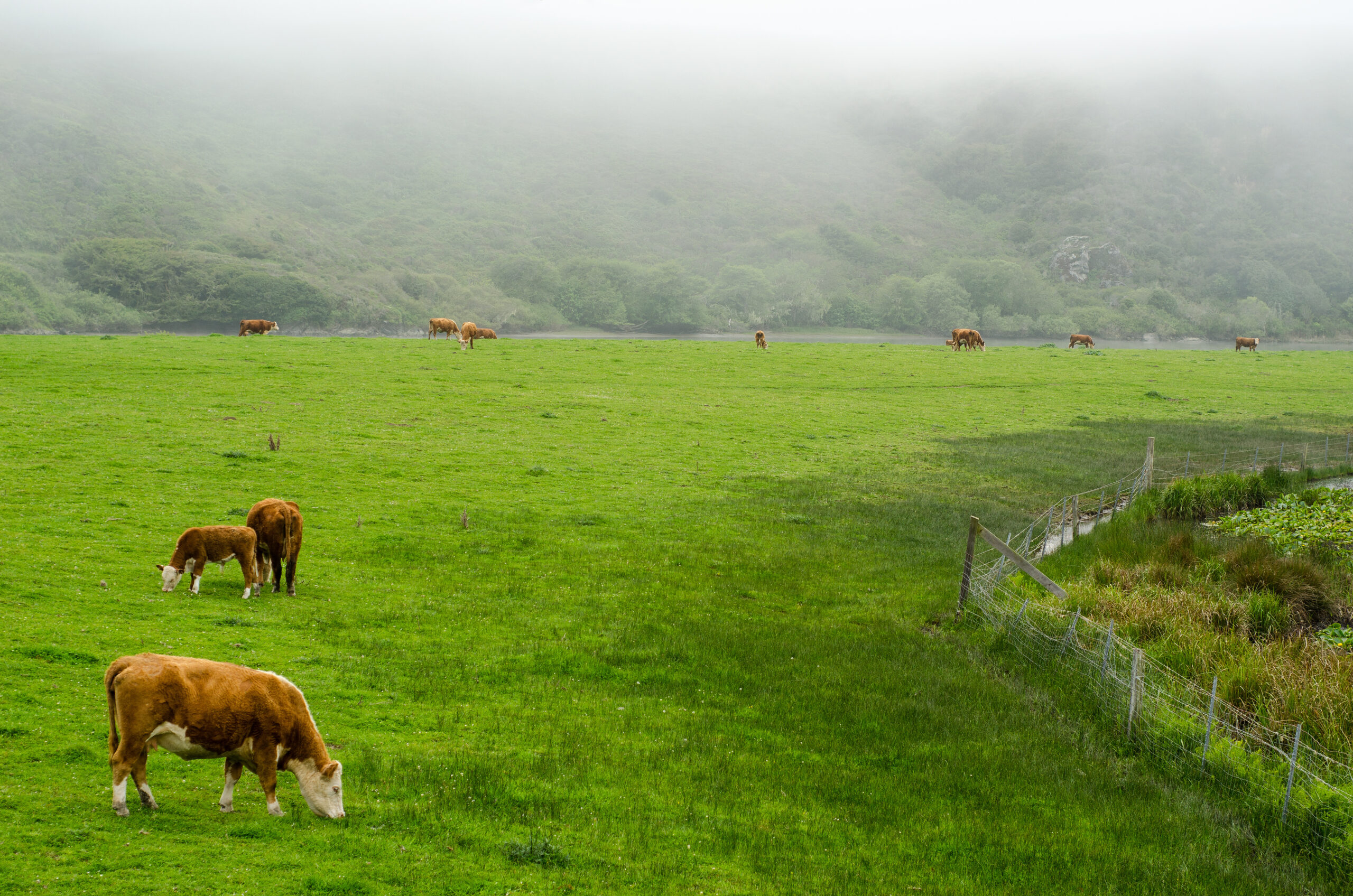
The California Department of Food and Agriculture (CDFA) and the California Dairy Research Foundation (CDRF) are now accepting grant applications through the Dairy PLUS program from dairies for the installation of equipment and the implementation of practices that result in long-term methane emissions reductions and nutrient surplus reductions.
At Sustainable Conservation, we are committed to working with farmers to ensure clean drinking water and reduced emission footprints. Through collaborative programs like Dairy PLUS, we can help uplift solutions to shape a sustainable future for dairy farming that benefits both the environment and communities in agricultural areas.
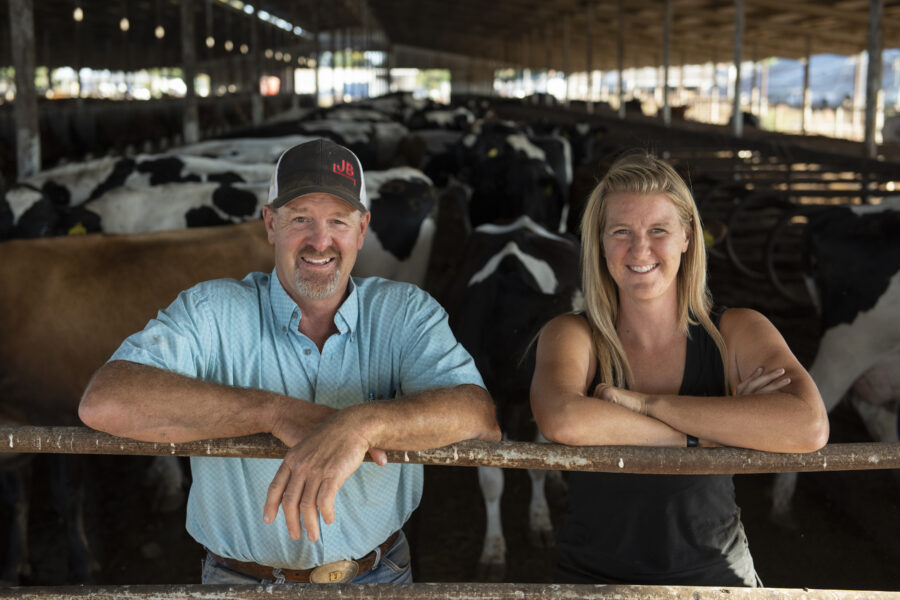
2022 California Leopold Conservation Award winners Doug and Sharon Beretta of Beretta Family Dairy. Paolo Vescia
Driving Dairy Innovation: Reducing nutrient pollution, protecting water quality, and reducing greenhouse gas emissions
Why is the Dairy PLUS program so impactful, and why does Sustainable Conservation work with California dairies?
Manure is nitrogen-rich and serves as a potent and free input for fertilizing feed crops. However, the lack of management options for dairy producers can result in overapplication, leading to nitrogen leaching into groundwater. This is particularly problematic in certain regions in California, where animal manure accounts for 32% of nitrate loading in groundwater, as reported by UC Davis. Nitrate, in turn, is the most prevalent human-caused water pollutant in California, contributing to contamination that affects nearly one million residents who currently lack access to clean drinking water.
While protecting water quality in the San Joaquin Valley is the primary outcome of interest for Sustainable Conservation’s work with dairies, we are also looking at co-benefits, such as reducing greenhouse gas emissions. Dairy farming is a significant source of methane emissions, a greenhouse gas with 90 times the warming power of carbon dioxide. Since 2015, CDFA’s methane programs have funded 308 projects that are projected to reduce greenhouse gas emissions comparable to removing 6.2 million gasoline-powered cars from the road. This massive reduction in greenhouse gases underscores the potential for the Dairy PLUS program to contribute meaningfully to California’s climate goals, particularly as methane emissions continue to rise at rates faster than any other major greenhouse gas.
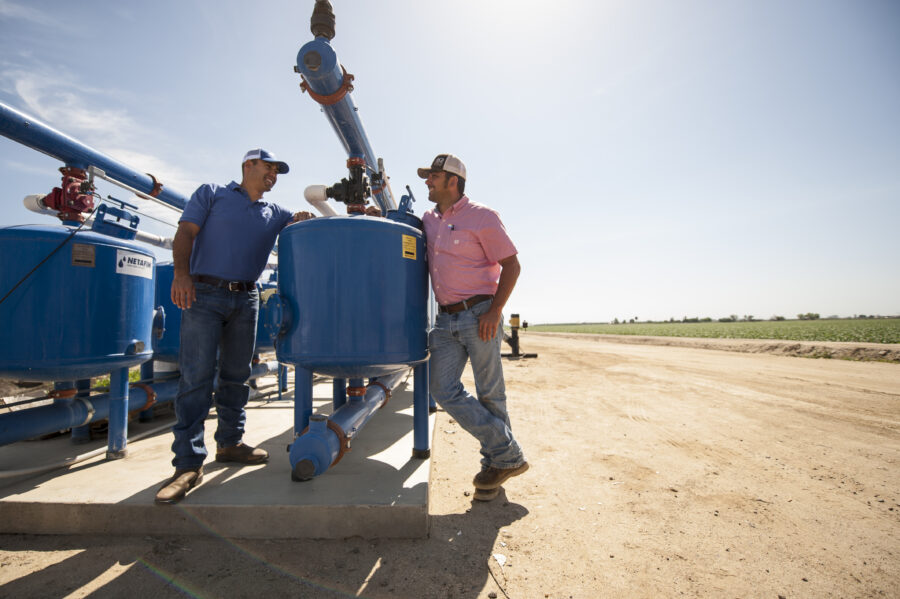
Sustainable Conservation Project Director John Cardoza (left) poses with De Jager Dairy CEO Nate Ray posing with Netafim’s MSDI irrigation tanks. Paolo Vescia
At Sustainable Conservation, we are proud to champion nutrient management innovations that align with the outcomes pursued by Dairy PLUS. Our manure subsurface drip irrigation (MSDI) system, in collaboration with Netafim and pioneering dairy producers like De Jager Farms, is an eligible practice funded by Dairy PLUS. MSDI is designed to apply dairy wastewater blended with freshwater directly to dairy feed crops, precisely delivering nutrients right where the roots need them, minimizing both nitrogen overapplication and greenhouse gas emissions.
When solutions like methane digesters or Sustainable Conservation’s subsurface drip irrigation system are adopted by dairies at scale — the cumulative environmental benefits can be immense. Dairies that integrate these technologies are positioned to significantly reduce both methane emissions and nitrate pollution, protecting vital resources while remaining economically viable in a shifting climate.
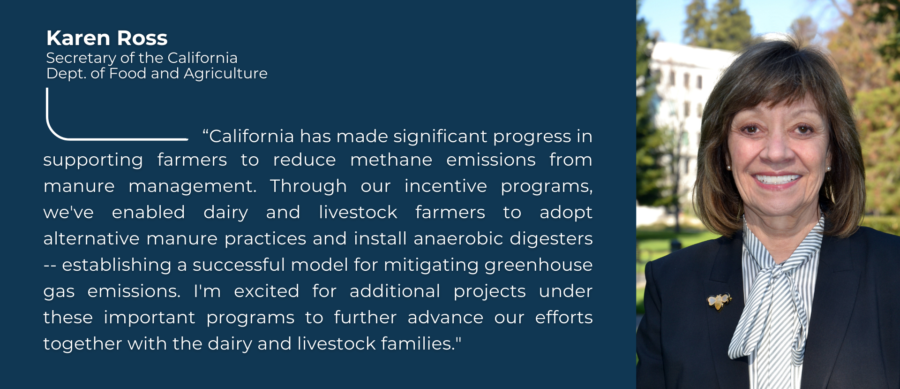
Access Grants for Sustainable Manure Management Solutions
The second round of grants for Dairy PLUS aims to build on its prior success by incorporating advanced manure management practices that also address nitrogen and salt surpluses. With a new round of funding available, now is the time for eligible producers to apply and further contribute to your dairy greenhouse gas and nutrient surplus reduction goals.
If you’re a dairy producer interested in exploring sustainable practices that reduce methane emissions and nutrient surpluses, now is the time to take action. Grant applications for Dairy PLUS are currently open, and we encourage all dairy producers to apply.
Recent MSDI News and Media
